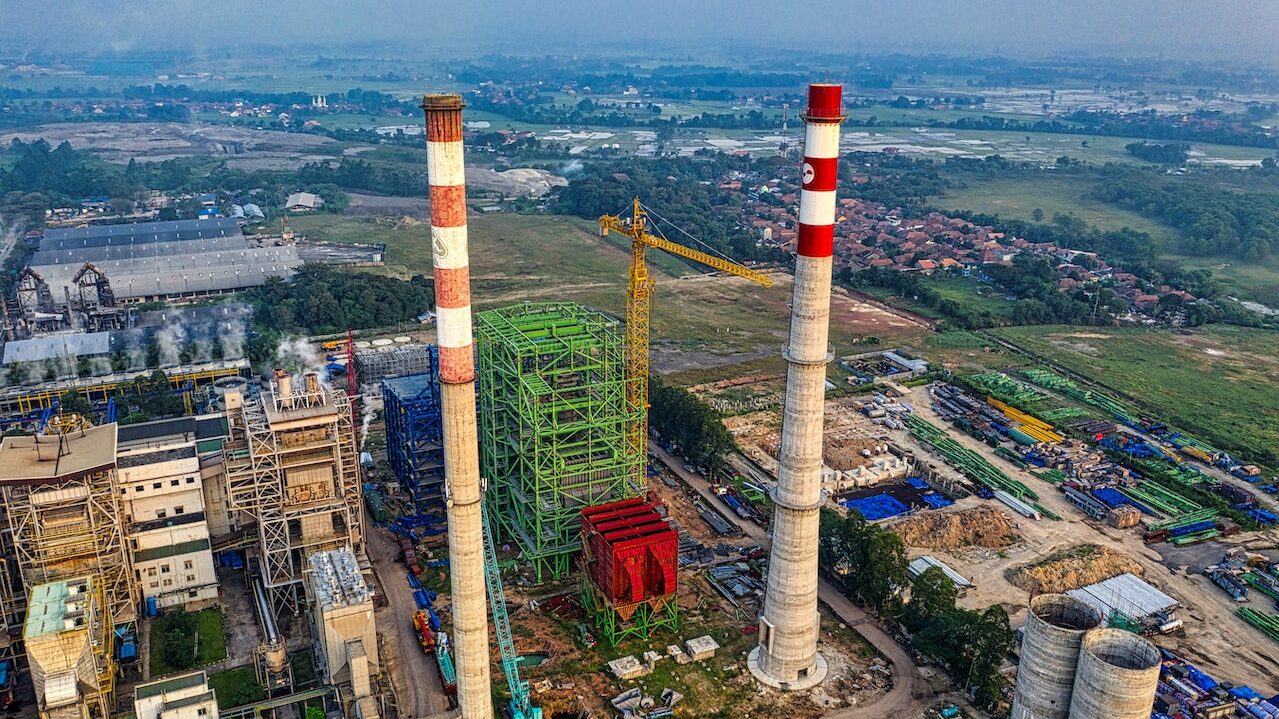Introduction
All of us are impacted by the worldwide problem of climate change. Natural disasters are occurring more frequently, temperatures are rising, and sea levels are rising as a result of our actions. It is now necessary for us to take steps to lessen our carbon footprint, which is a major cause of climate change. We can have a big impact on the environment and build a sustainable future for ourselves and future generations by calculating and lowering our carbon footprint. Reducing our carbon footprint is critical to mitigating the impact of climate change. By making changes to our daily lives and advocating for systemic change, we can reduce our greenhouse gas emissions and protect our planet for future generations.

Understanding our Carbon Footprint
The entire amount of greenhouse gasses that our actions cause to be released into the atmosphere is known as our carbon footprint. It is influenced by the decisions we make every day about things like how we get around, how much energy we use, how much food we eat, and what products we buy. We need to calculate our carbon footprint in order to determine the amount of our impact because many of these behaviors have unnoticed negative effects on the ecosystem.

Online calculators that consider our lifestyle choices can be used to calculate our carbon footprint. These tools give us a starting point from which to start making adjustments to lessen our environmental effect. We may lessen our carbon footprint by taking the appropriate action once we are aware of it.
Individual Actions for Carbon Footprint Reduction
Individual acts are where we can start to reduce our carbon impact. We can alter many aspects of our daily routines to significantly affect the environment. Here are some ideas to get you going:
1. Reduce your meat consumption
Particularly with regard to the production of cattle, the meat industry significantly contributes to greenhouse gas emissions. Your carbon footprint can significantly decrease if you eat less meat. You can start by switching to plant-based meals or experimenting with vegetarian meals a few times per week.
2. Use public transportation or carpool
Another significant source of greenhouse gas emissions is transportation. When going to work or school, think about taking public transportation, carpooling, or biking or walking. These choices can considerably lessen your carbon footprint.
3. Switch to renewable energy
Think about transitioning to alternative energy sources like wind or solar energy. Renewable energy options are now provided by numerous utility companies. You may lessen your carbon footprint and encourage the development of clean energy by choosing renewable energy.
4. Buy local and seasonal produce
Purchasing locally grown food minimizes the carbon footprint of production, storage, and transportation. Additionally, it aids regional entrepreneurs and farmers. Find local community-supported agriculture initiatives or farmers markets.
5. Reduce, reuse, and recycle
The reduction of our waste and carbon footprint depends on these three R’s. Think about consuming less single-use items, reusing items rather than tossing them away, and recycling as much as you can.
The Importance of Systemic Change

While individual acts are crucial, systemic change is required to properly combat climate change. The fight against climate change requires major participation from both governments and businesses. Here are a few ways they can influence society:
The role of governments in tackling climate change
Governments can enact laws and regulations that lower greenhouse gas emissions, support renewable energy sources, and reward environmentally friendly behavior. In order to lessen our carbon impact, they can also invest in the research and development of innovative technology.
The responsibility of corporations
Businesses have a duty to implement sustainable practices and reduce their carbon footprint. They can achieve this by enacting environmentally friendly laws, cutting waste, and putting money into renewable energy sources.

Shifting priorities from short-term profits to long-term sustainability
Long-term sustainability must become more important to us than short-term profitability. This entails taking into account how our actions will affect the environment and putting the welfare of the earth ahead of personal gain.
Taking Action: How You Can Make a Difference

People can take action by promoting climate action, supporting businesses that prioritize sustainability, voting for officials who prioritize sustainability, and demanding legislation that safeguard the environment. Here are some ways you can influence people:
How to advocate for climate action:
Speaking up for laws that combat climate change and preserve the environment is referred to as advocating for climate action. You may get started by contacting your local legislators and requesting that they support measures that protect the environment. To demonstrate your support for climate action, you can also take part in marches, rallies, and other gatherings. Social media is an effective tool for raising awareness and inspiring action.
Voting for politicians who prioritize sustainability
Your vote can help raise awareness of sustainability and combat climate change. Before casting your vote in local, state, and federal elections, research the candidates and their positions on climate problems. Supporting candidates who value sustainability and have a history of advancing environmental policy is a good idea.
Supporting companies that prioritize sustainability
Many businesses are making efforts to cut back on carbon emissions and promote sustainability. By buying their goods and spreading the word about their initiatives, you can help these businesses. A further way to hold businesses accountable is to boycott those who use practices that hurt the environment.
Demanding policies that protect our planet
Governments are obligated to safeguard the environment and combat climate change. Individuals can affect government action by calling for policies that support sustainability. Supporting environmental groups, signing petitions, and contacting political officials to voice support for climate-friendly legislation are a few examples of how to do this.
The Importance of Systemic Change
A worldwide response to climate change requires structural change, even while individual acts are crucial in lowering our carbon footprint. The promotion of sustainability and the reduction of greenhouse gas emissions are major responsibilities of both governments and businesses. They can help in the following ways:

The role of governments in tackling climate change
Governments have the authority to put sustainability laws into place and lower greenhouse gas emissions. This can involve making investments in renewable energy, controlling sectors that emit large amounts of pollution, and supporting environmentally friendly modes of transportation.
The responsibility of corporations
Businesses must lessen their carbon footprints since they have a substantial environmental impact. This can involve supporting sustainable corporate practices, using less waste, and making investments in renewable energy.
Shifting priorities from short-term profits to long-term sustainabilityMany industries place a higher priority on immediate profits than long-term viability. This may result in practices that are damaging to the environment and have a larger carbon footprint. Businesses and industries may lessen their influence on the environment and support a more sustainable future by reorienting their objectives toward long-term sustainability.
Conclusion
Although our carbon footprint significantly contributes to climate change, there are things we can do to lessen our environmental impact. Using public transport, switching to renewable energy, and cutting back on meat consumption are just a few examples of individual activities that are crucial in lowering greenhouse gas emissions. To combat climate change on a global scale, however, structural reform is also required. The promotion of sustainability and the reduction of greenhouse gas emissions are major responsibilities of both governments and businesses.
Although it is a difficult effort, combating climate change and reducing our carbon footprint are essential for the survival of our world. We can ensure a more sustainable future for ourselves and future generations by acting now and urging systemic change.



